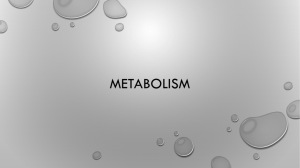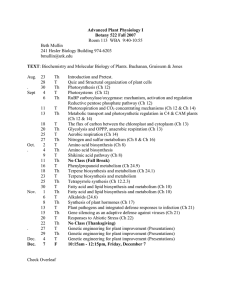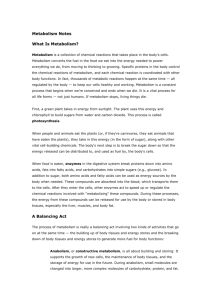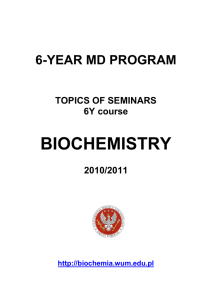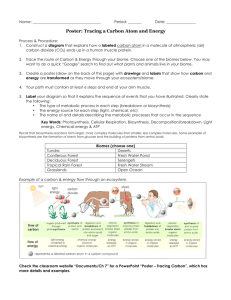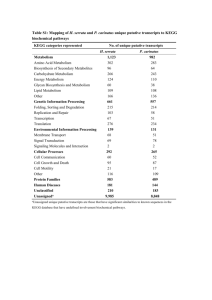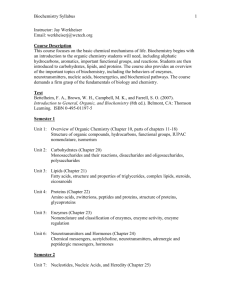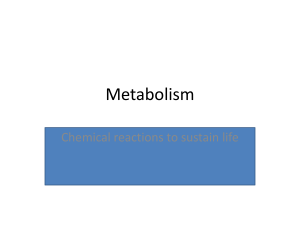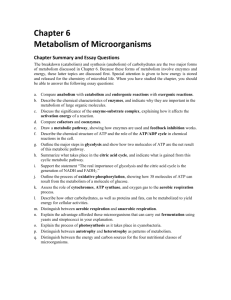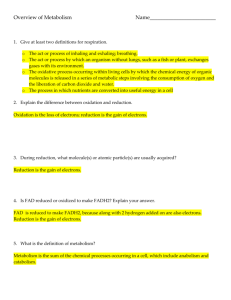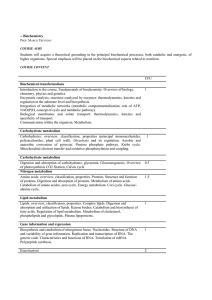3 Microbial metabolism
advertisement
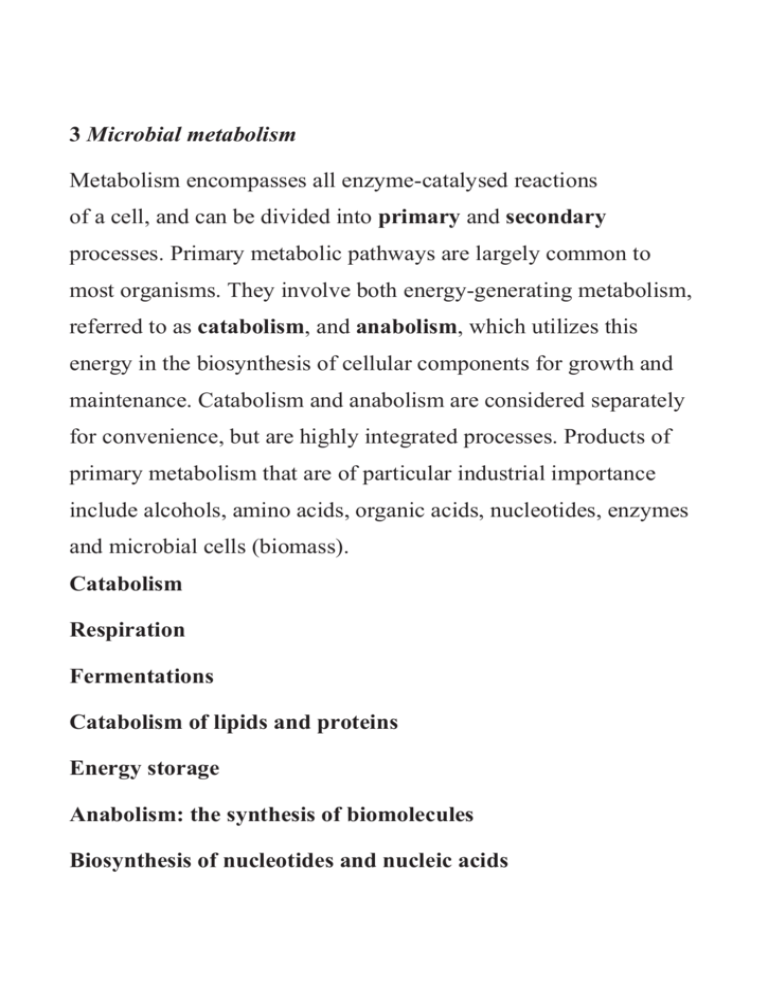
3 Microbial metabolism Metabolism encompasses all enzyme-catalysed reactions of a cell, and can be divided into primary and secondary processes. Primary metabolic pathways are largely common to most organisms. They involve both energy-generating metabolism, referred to as catabolism, and anabolism, which utilizes this energy in the biosynthesis of cellular components for growth and maintenance. Catabolism and anabolism are considered separately for convenience, but are highly integrated processes. Products of primary metabolism that are of particular industrial importance include alcohols, amino acids, organic acids, nucleotides, enzymes and microbial cells (biomass). Catabolism Respiration Fermentations Catabolism of lipids and proteins Energy storage Anabolism: the synthesis of biomolecules Biosynthesis of nucleotides and nucleic acids NUCLEIC ACIDS Biosynthesis of amino acids and protein Biosynthesis of monosaccharides and polysaccharides PEPTIDOGLYCAN BIOSYNTHESIS Biosynthesis of fatty acids and lipids Autotrophy Photoautotrophy ANOXYGENIC PHOTOSYNTHETIC BACTERIA OXYGENIC PHOTOSYNTHESIS Chemolithotrophic autotrophy Methylotrophic metabolism Metabolic regulation Modification of enzyme activity
